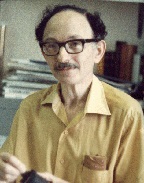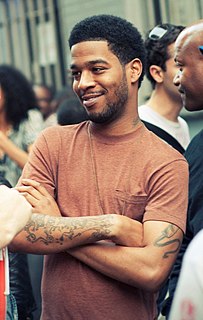A Quote by Tom Chatfield
If computers remain far worse than us at image recognition, a certain over-confident combination of man and machine can elsewhere take inaccuracy to a whole new level.
Related Quotes
Each new machine or technique, in a sense, changes all existing machines and techniques, by permitting us to put them together into new combinations. The number of possible combinations rises exponentially as the number of new machines or techniques rises arithmetically. Indeed, each new combination may, itself, be regarded as a new super-machine.
A machine helps us to annihilate our weaknesses. We don't have a steady hand. We can lose all vigilance. We can be distracted by something that is not that relevant. But we have intuition. We can feel certain things. And with a machine you can check whether it's right or wrong. That's why by bringing the two together, you create a very, very powerful combination.
At the age of 5, when I was in kindergarten, I often used to pass by the computer labs and see students doing work on computers. I realized that calculation, which would take us a long time to do, can be done in less than a second with the help of computers. So that is how my interest in computers began.
Chess computers do not sweat during time pressure and commit costly blunders. Furthermore, the strength of these programs (over and above their faultless recall processes) lies in their capacity to make relatively superficial tactical decisions with incredible speed. Positional values, long-range strategy, aesthetic judgment, and political astuteness remain staples of human performance, man vs. machine results in the foreseeable future to the contrary not withstanding.
Let an ultraintelligent machine be defined as a machine that can far surpass all the intellectual activities of any man however clever. Since the design of machines is one of these intellectual activities, an ultraintelligent machine could design even better machines; there would then unquestionably be an 'intelligence explosion,' and the intelligence of man would be left far behind. Thus the first ultraintelligent machine is the last invention that man need ever make.
Congratulations on the new library, because it isn't just a library. It is a space ship that will take you to the farthest reaches of the Universe, a time machine that will take you to the far past and the far future, a teacher that knows more than any human being, a friend that will amuse you and console you-and most of all, a gateway, to a better and happier and more useful life.
Until computers and robots make quantum advances, they basically remain adding machines: capable only of doing things in which all the variables are controlled and predictable. Robots are bad at pattern recognition and certainly at common sense. That's why computers can beat humans in chess but can't have even a basic conversation with a six-year-old.
Around every corner is another gift waiting to surprise us, and it will surprise us if we can achieve control over our natural tendencies to make comparisons [to things that are better rather than things that are worse], to take things for granted [rather than imagining how much worse things would be if they weren't there and so feeling grateful], and to feel entitled!
Not only does a journey transport us over enormous distances, it also causes us to move a few degrees up or down in the social scale. It displaces us physically and also for better or for worse takes us out of our class context, so that the colour and flavour of certain places cannot be dissociated from the always unexpected social level on which we find ourselves in experiencing them.



































